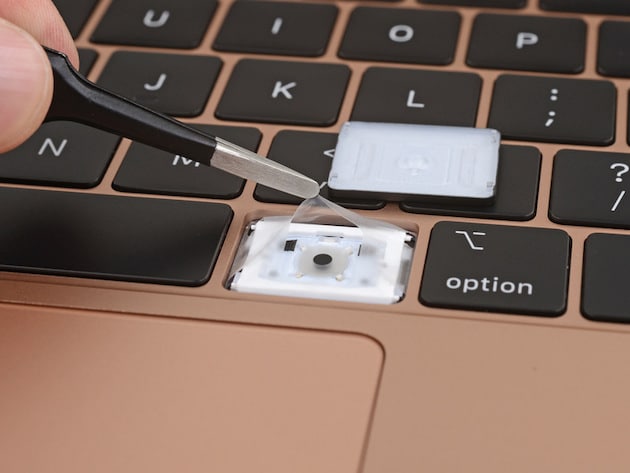
The fight for right to repair law is heating up in many states. Companies like Apple and Microsoft are fighting tooth and nail against right-to-repair law. On the other side, consumer groups are increasingly rallying against tech companies opposing the bill. In a new report, Bloomberg outlines how Apple is preparing an arsenal to fight against third-party repair options in the latest report.
Companies have been accused of having a tight leash over component supply. Some of them, including Apple, authorizes only a select few to fix their devices. Third-party repair stores allege that wear and tear components like USB ports and batteries are kept in short supply or in some cases, not shared with smaller independent repair shops.
Twenty-seven states considered such bills in 2021. More than half have already been voted down or dismissed, according to consumer groups tracking the proposals. To advocates of these bills, the current repair system is a major reason why we cycle through personal devices so quickly, furthering the environmental impact of these gadgets.
Large companies have access to a host of resources. As a result, they wage war on multiple fronts, including but not limited to aggressive lobbying. Most of the times, lack of components or adequate support could force consumers to buy new smartphones. This is allegedly one of the main reason why companies are against third party repairs.
Adverse Environmental Effects
The restricted repair might help fasten the replacement cycle. However, it has a negative impact on the environment. A report by US PIRG claims the US consumes a whopping 23.7 million tons of raw materials every year for manufacturing new smartphones. Even if the replacement cycle is delayed by one year, then the saving in emissions would be equivalent of taking more than half a million cars off the road.
Apple and other tech companies know how to leverage their power and political reach. They argue that the right to repair law will encourage pirates and expose the companies intellectual property. Another argument is that unauthorized repair shops pose security concerns and could damage batteries on the devices.
Our Take
Repair shops argue that the parts and schematics are not readily available. Sometimes this might force them to opt for less optimal solutions. They also argue that manufacturers require a specific version of a component, and this is mainly done to weed out unauthorized repairs.
Earlier this year, Apple announced that its supply chain would be Carbon Neutral by 2030. Apple says it ditched the wall charger on new iPhones to reduce the burden on the environment. Apple has always projected itself as an environmental friendly company. Ideally, Apple should find a solution that ensures the free flow of schematics and components for third-party repair while safeguarding consumers from security and repair quality issues.
[via Bloomberg]